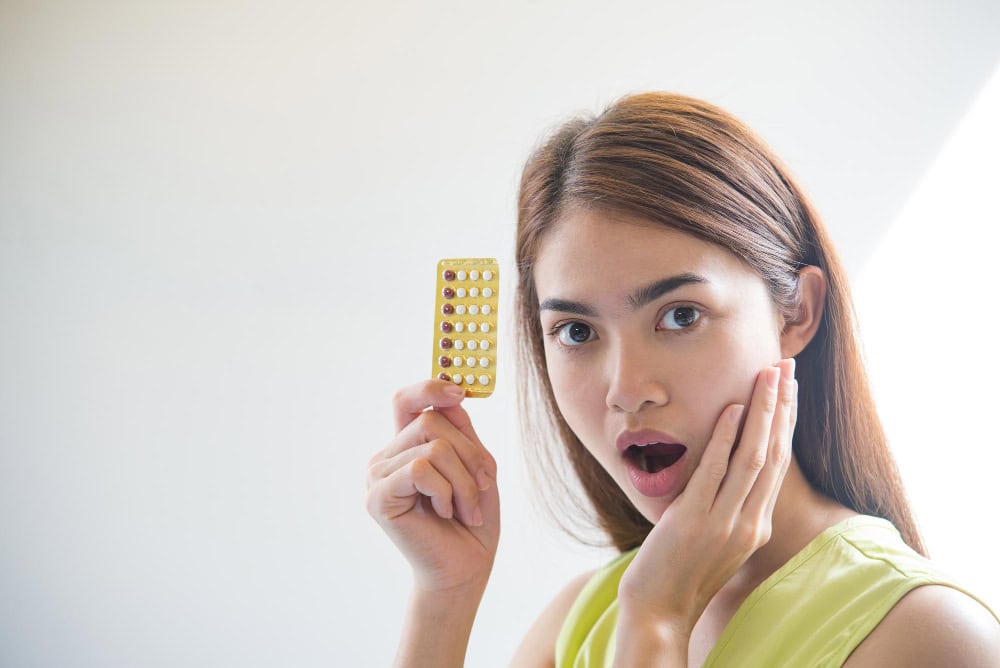
We’ve all either experienced or heard of this situation: the barrier contraceptive breaks or slips during sexual intercourse, and panic immediately sets in. The first thought that often comes to mind is the “morning-after pill.” But then the questions start, Am I safe? How soon should I take it? Is 72 hours really okay?
According to Dr. Akta Bajaj, Gynecologist at Aksh Clinic, Paschim Vihar, New Delhi, “Emergency contraceptive pills are most effective when taken as early as possible, ideally within the first 12–24 hours. Delaying even a few hours can reduce their effectiveness significantly, so timing is crucial.”
This kind of confusion is common. While most people know that emergency contraceptive pills (ECPs) exist, very few actually understand how they work, when exactly they should be taken, and what their real limitations are. And here’s the truth: “within 72 hours” does not tell the full story.
Let’s break it down clearly.
What Exactly Is an Emergency Contraceptive Pill (ECP)?
In India, emergency contraceptive pills are readily available without a prescription. They serve as a backup method when regular contraception fails, such as in cases of condom breakage, missed birth control pills, or unprotected intercourse.
Most ECPs contain Levonorgestrel, a synthetic hormone that:
- Delays or prevents ovulation (if no egg is released, fertilization cannot occur).
- Prevents sperm from reaching the egg.
- Changes the lining of the uterus, making it more difficult for a fertilized egg to implant.
Important: The pill’s effectiveness significantly decreases if ovulation has already taken place. Also, ECPs do not terminate an existing pregnancy.
Timing Is Everything
Here’s where the biggest confusion lies. Yes, the pack says “take within 72 hours.” But effectiveness is not equal at all hours.
| Time After Intercourse | Effectiveness |
| Within 12 hours
Within 24 hours 48 to 72 hours |
~95%
~85% ~58% |
While packaging may claim protection lasts “up to 72 hours,” the effectiveness drops considerably with each hour that passes. To achieve the best results, emergency contraceptive pills (ECPs) should be taken as quickly as possible, preferably within the first 12 to 24 hours.
Safe Use Checklist

Before using an emergency contraceptive pill, keep these points in mind:
- Should be taken within 72 hours after unprotected sex (the sooner, the better)
- Bought from a reliable pharmacy with packaging that is sealed and undamaged
- Check the expiration date
- Only one pill is needed; older versions with multiple doses are no longer recommended
- According to Dr. Aekta, you should always speak with a healthcare provider if you are on any kind of medications, especially anti-epileptics or antibiotics.
After Taking the Pill
- You might experience spotting or mild cramps, which are generally harmless.
- Your menstrual cycle could shift by up to ±7 days.
- If your period is delayed by more than 7 days, take a pregnancy test.
- Resume or switch to a reliable, regular contraceptive method.
Possible Side Effects
Most side effects are temporary and go away without treatment:
- Nausea or vomiting
- Mild abdominal cramps
- Headache or dizziness
- Breast tenderness
- Irregular bleeding or spotting
- Slightly early or late menstruation
If you vomit within 2 hours of taking the pill, you may need to take another dose.
“Feel confident, safe, and cared for with our discreet sexual wellness support.”
Risk of Overuse
Emergency Contraceptive Pills (ECPs) are designed solely for urgent situations. They should not be used frequently as a replacement for regular birth control methods. Repeated use may result in:
- Hormonal disturbances
- Irregular or unpredictable menstrual cycles
- Heavy or painful menstruation
While ECPs do not directly cause long-term infertility, excessive use can negatively affect reproductive health.
Key Note on STIs
ECPs prevent pregnancy only and do not protect against sexually transmitted infections (STIs) such as HIV, syphilis, gonorrhea, chlamydia, or HPV. Using condoms remains the most reliable way to prevent STIs.
“Book a private consultation with a certified doctor and get answers without judgment.”
Final Takeaway
Emergency contraceptive pills are a safe and effective backup method when used properly. The key element is timing; the earlier they are taken, the greater the effectiveness. They should not be used as a main form of contraception and do not offer protection against sexually transmitted infections.
For those who frequently require emergency contraception, it is highly recommended to switch to a regular contraceptive method such as condoms, oral contraceptives, or intrauterine devices. Consulting a gynecologist can help determine the safest and most effective option for long-term reproductive health.
Frequently Asked Questions
Can repeated use of ECPs cause infertility?
No. They may disturb cycle regularity if used frequently, but are not directly linked to infertility.
Can ECPs be used after every act of unprotected sex in the same cycle?
Technically possible, but not recommended. Regular contraception should be used instead.
Does bleeding after taking the pill confirm success?
No. Bleeding may occur due to hormonal changes, not necessarily as a sign of effectiveness.
Only a missed period or pregnancy test can confirm.
Do alcohol or junk food affect the pill’s effectiveness?
No direct impact, but vomiting due to alcohol within 2 hours of intake may reduce effectiveness.
Are emergency pills the same as abortion pills?
No. ECPs prevent pregnancy before it begins. Abortion pills terminate an established pregnancy.
Can Ulipristal work after ovulation?
Ulipristal can delay ovulation even if it has started. However, if ovulation is already complete, no ECP will be effective.
(The article is written by Mantasha, Executive, Clinical Health & Content, and reviewed by Monalisa Deka, Senior Health Content Editor)